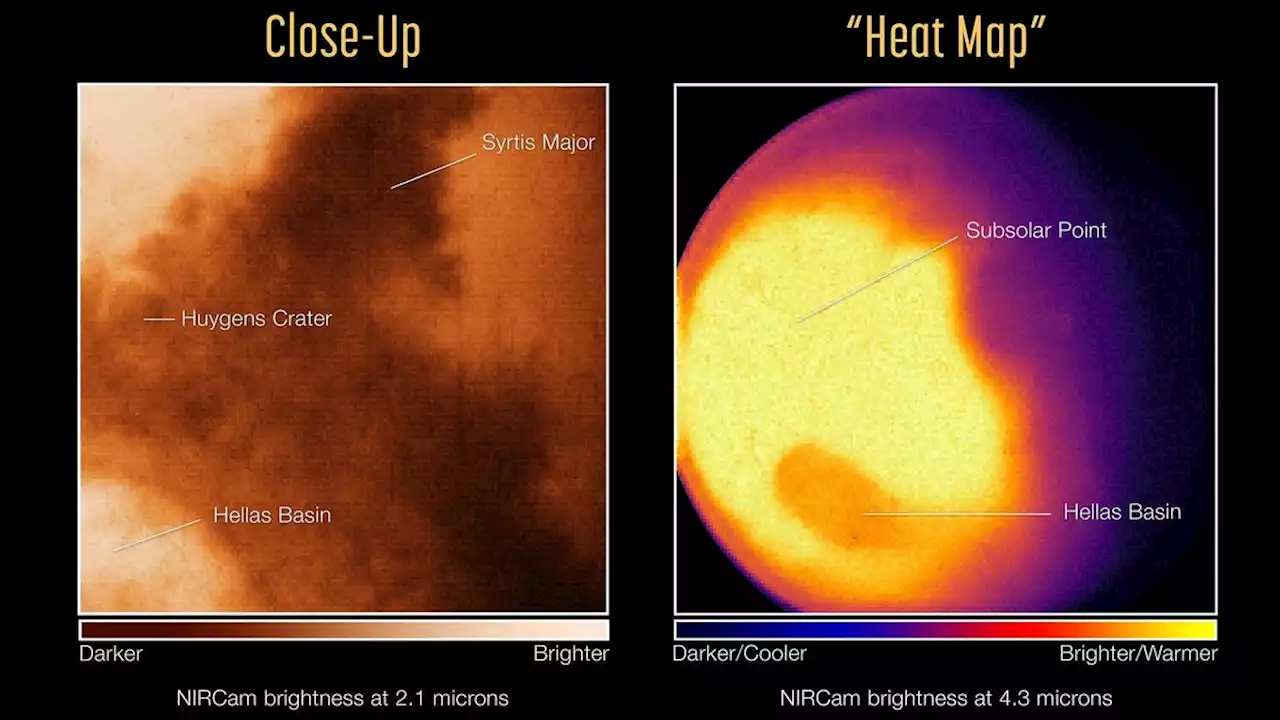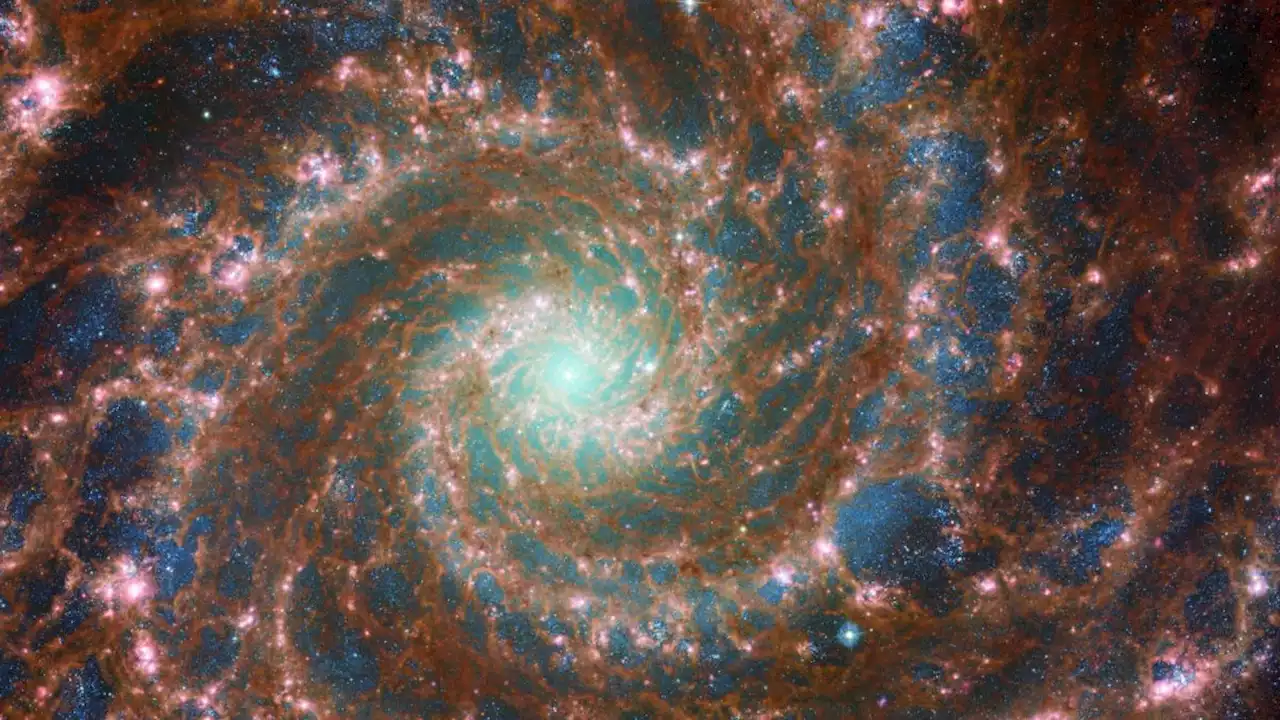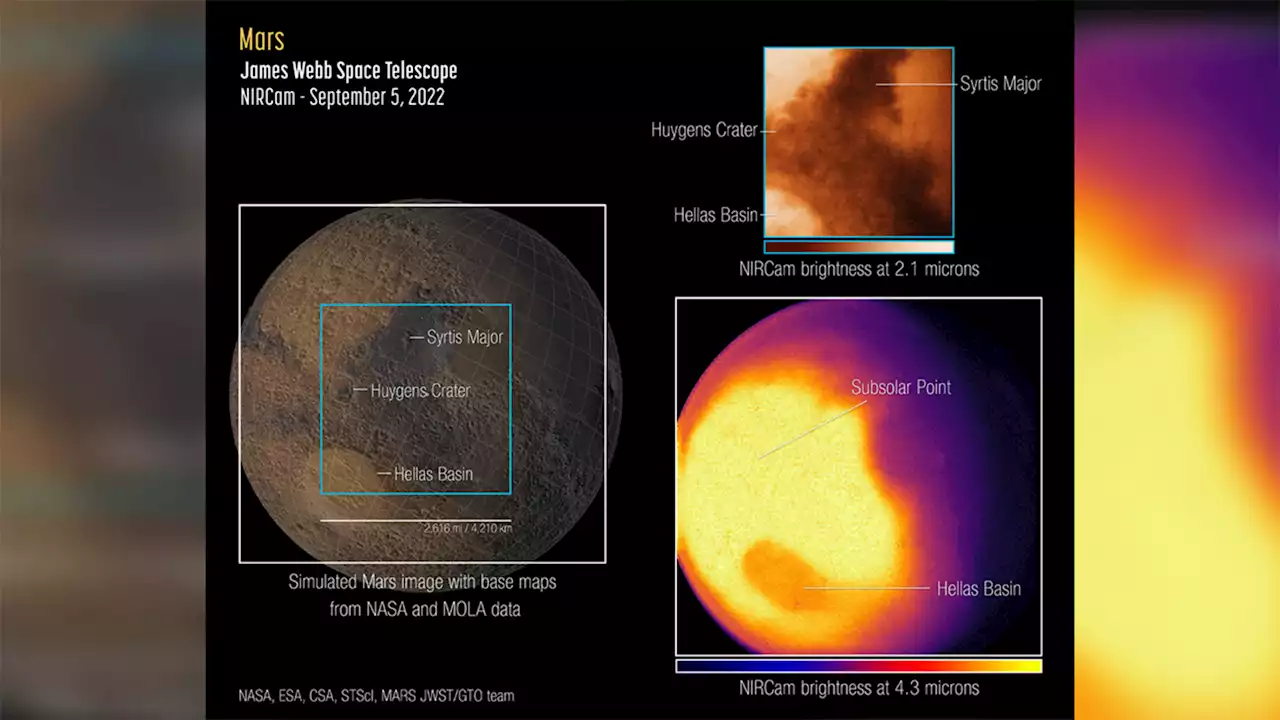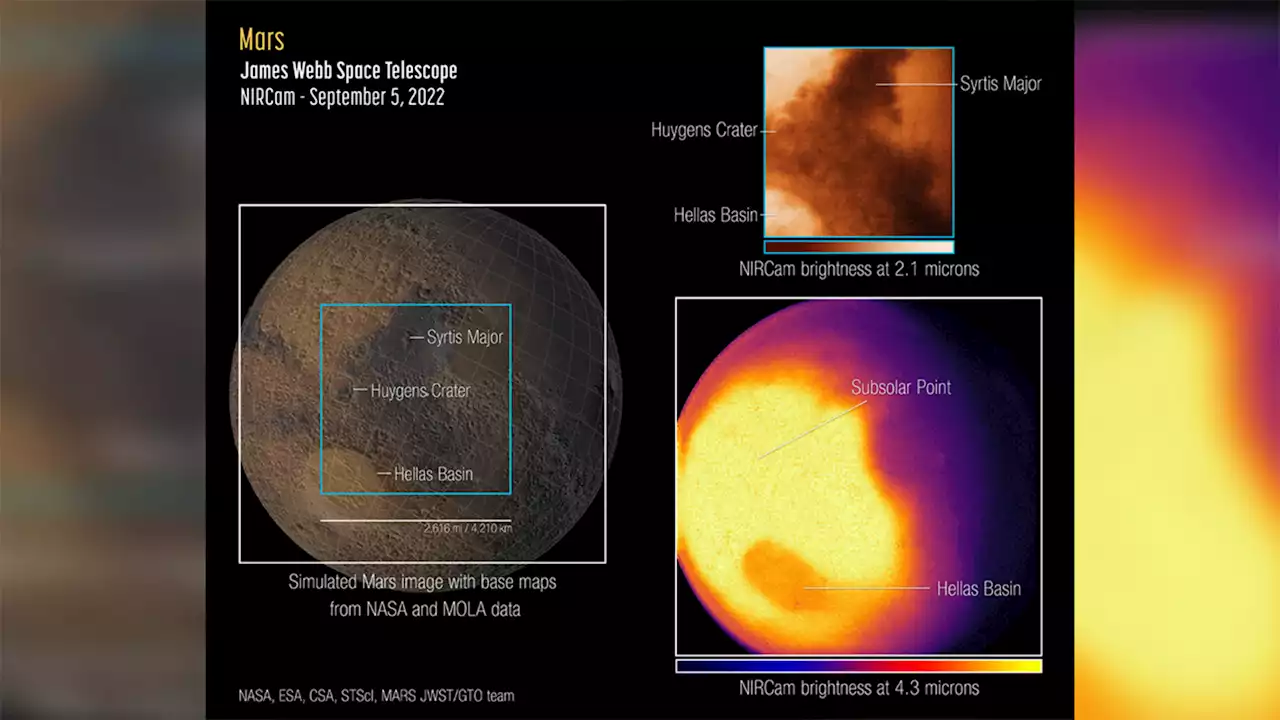An image from Webb Telescope shows faint rings and moons around Neptune, the farthest known solar system planet.
, and the planet appears darker,. The bright streaks and blobs in the image are
high-altitude clouds, which reflect sunlight before it can be absorbed by the planet’s methane. Webb was also able to seeG/O Media may get a commissionThis doctor-directed treatment costs thousands less than braces, and is done entirely from the comfort of your own home. The process starts with teeth impressions, and after that, doctors formulate the best plan of action for your smile.It’s easy to overlook the intrigue of Neptune in favor of our closer neighbors like Mars and Venus.
United States Latest News, United States Headlines
Similar News:You can also read news stories similar to this one that we have collected from other news sources.
 Mars Is Mighty in First Webb Observations of Red Planet – James Webb Space Telescope
Mars Is Mighty in First Webb Observations of Red Planet – James Webb Space Telescope
Read more »
 Webb Space Telescope Images Mars for the First TimeWebb turned its infrared gaze on the Martian surface and atmosphere.
Webb Space Telescope Images Mars for the First TimeWebb turned its infrared gaze on the Martian surface and atmosphere.
Read more »
 Can the James Webb Space Telescope really see the past?Scientists want to use Webb to see the beginning of the universe. How is that possible?
Can the James Webb Space Telescope really see the past?Scientists want to use Webb to see the beginning of the universe. How is that possible?
Read more »
 Webb Space Telescope spots blinding light coming from MarsThe James Webb Space Telescope's main goal is to detect faint light from distant galaxies, but it recently observed one of the brightest objects in the night sky: Mars.
Webb Space Telescope spots blinding light coming from MarsThe James Webb Space Telescope's main goal is to detect faint light from distant galaxies, but it recently observed one of the brightest objects in the night sky: Mars.
Read more »
 Webb Space Telescope spots blinding light coming from MarsThe James Webb Space Telescope's main goal is to detect faint light from distant galaxies, but it recently observed one of the brightest objects in the night sky: Mars.
Webb Space Telescope spots blinding light coming from MarsThe James Webb Space Telescope's main goal is to detect faint light from distant galaxies, but it recently observed one of the brightest objects in the night sky: Mars.
Read more »
 Webb Space Telescope spots blinding light coming from MarsThe James Webb Space Telescope's main goal is to detect faint light from distant galaxies, but it recently observed one of the brightest objects in the night sky: Mars.
Webb Space Telescope spots blinding light coming from MarsThe James Webb Space Telescope's main goal is to detect faint light from distant galaxies, but it recently observed one of the brightest objects in the night sky: Mars.
Read more »
